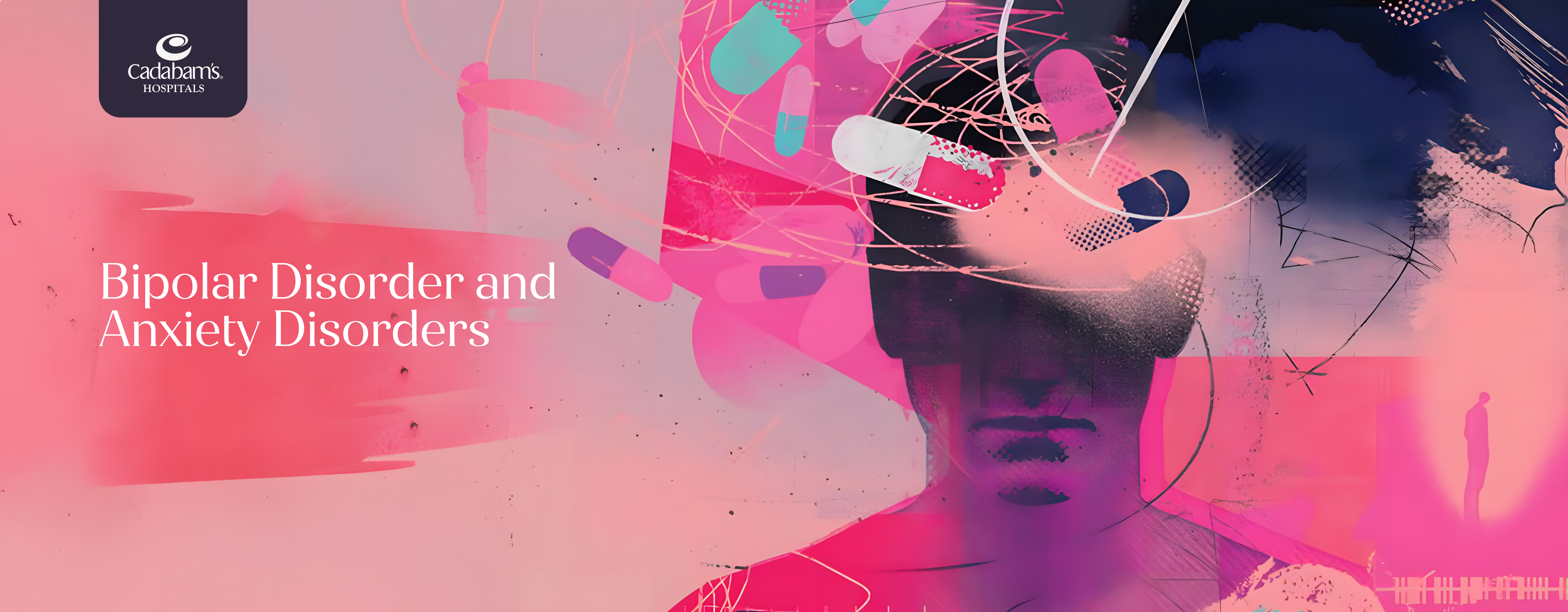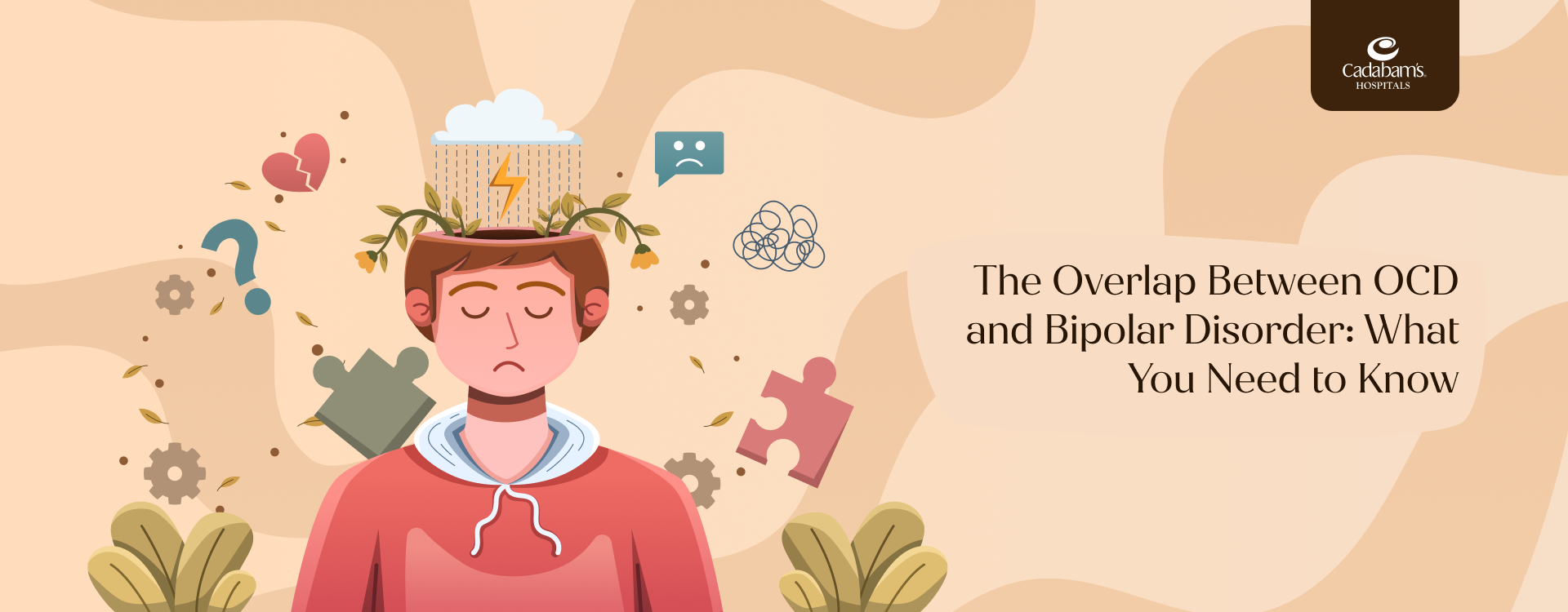The Foundation of Family Therapy in Bipolar Disorder Care
Recognising the critical function of family therapy in bipolar disorder treatment is the first step towards understanding the condition. Effective management relies on creating supportive family situations and improving communication channels. Other important elements include:
Principles and Goals of Family Therapy for Bipolar Disorder
The main goals of our family therapy for bipolar disorder are to encourage open communication and a supportive and understanding environment within the family. This fosters empathy and lowers stress levels by enabling family members to confront the challenges brought on by bipolar disorder together.
Family therapy encompasses strategies for stress management, psychoeducation, and structured approaches to problem-solving. It aims to enhance the patient’s rehabilitation by improving the family environment, emphasising expressed emotions and developing coping skills.
How Family Therapy Complements Individual Treatment Plans
Involving family members in treatment plans can enhance communication, foster better understanding, and provide essential support. This collective approach promotes comprehensive healing by focusing on relational dynamics.
Cadabam’s offers psychoeducation, family therapy, and skill development to help caretakers overcome challenges. It lowers the risk of relapse and improves general health by creating a supportive environment for recovery.
Focusing on how family dynamics influence individual challenges, this holistic approach enhances treatment effectiveness and promotes sustained improvement in managing bipolar disorder.
The Process of Family Therapy: What to Expect
The opinions and feelings of every individual are respected in Cadabam’s family therapy. In a welcoming setting, sessions frequently incorporate education, stress reduction, and problem-solving. Along with learning more about bipolar disease and how to manage it, you’ll also improve your communication skills and build empathy.
Expect to collaborate on long-term treatment plans that are tailored to your loved one’s needs. As you exchange experiences and learn together, you will gradually assume more responsibility, allowing you to properly assist your relative.
The goal of our family therapy is to support your loved one’s recovery while empowering you to manage the difficulties posed by bipolar disorder and fostering understanding among family members.
Key Techniques and Approaches in Family Therapy for Bipolar Disorder
The highly trained professionals at Cadabam’s employ various essential methods and strategies to manage the complex dynamics of bipolar disorder. These techniques include:
Communication Skills Building within Families
Open communication and planned activities can help family members understand and sympathise with one another. Through appropriate communication strategies, you can help yourself manage the challenges associated with bipolar disorder with compassion and resiliency by fostering stronger connections and creating a supportive environment.
Conflict Resolution Strategies for Families
By employing problem-solving techniques and facilitated conversations, families can effectively settle disagreements. Encourage compromise and understanding among family members to foster unity. This will create a supportive environment and reduce stress levels, both of which are essential for the effective treatment of bipolar disorder.
Enhancing Coping Mechanisms for Family Members
It can be challenging to offer emotional support to a loved one who has bipolar disorder.
- Family members can increase their resilience by emphasising self-care, which includes restful activities and nutritious routines.
- Getting psychoeducation about bipolar disorder helps you understand the illness and manage your expectations.
- Joining support groups makes it easier to connect with those experiencing similar challenges.
By taking these steps, families can better care for themselves and their loved ones and equip themselves to handle difficult situations.
Educating Families on Bipolar Disorder Management
To effectively manage bipolar disorder, family members must be educated on the condition. Educational programs that describe symptoms, treatment options, and relapse prevention strategies might help dispel uncertainty regarding disorder.
This promotes communication and reduces stress by enabling families to take an active role in the care of their loved ones. Families can more effectively manage expectations and offer crucial assistance during the healing process when they have a better understanding of the condition.
In addition to providing support groups and emotional resources, our qualified specialists can offer you judgement-free guidance through this process.
Building a Supportive Home Environment
A home that is calm and tranquil is necessary for someone who has bipolar disorder.
- Establish regular sleep, eating, and medication schedules.
- Cut back on noisy and cluttered areas, as these can create triggers.
- Promote open dialogue, attentive listening, and no judgement of their experiences.
- Encouraging good habits and social interaction while respecting their desire for privacy during episodes.
The Benefits of Family Therapy for Managing Bipolar Disorder
Bipolar disorder affects the person as well as those close to them. Family therapy is therefore a useful strategy for resolving these issues. Here are some of the benefits of family therapy:
Improving Family Dynamics and Relationships
Through the development of empathy and the reduction of stress, our family therapy can enhance connections within the family. The therapists at Cadabam’s help families learn more constructive conflict resolution techniques and positive communication skills. As a result, families are better able to support one another and the bipolar individual.
Reducing Relapse Rates through Family Support
Cadabam’s family therapy is one very successful way that people with bipolar disorder can reduce their chance of recurrence. A therapist will provide tools that can be used to identify triggers and warning signs.
This may allow for early intervention and medication adjustments, thereby preventing a full-blown relapse. By working together, families may create a stable and healing environment.
Empowering Families to Navigate Bipolar Disorder Together
Families with bipolar disorder benefit from family therapy by learning good communication skills that enable them to address the illness and work through challenging circumstances as a team.
This fosters a sense of shared responsibility and reduces feelings of isolation. Families will work with Cadabam’s professionals to better manage their health and support their loved one’s recovery.
Fostering Understanding and Empathy among Family Members
Family therapy can improve communication skills by increasing empathy and understanding. Our professional mental health specialists create a secure setting for open discourse, allowing family members to express their concerns, disappointments, and experiences.
Families can develop a better understanding of the condition and its consequences by actively listening to and validating one another’s emotions.
Get Bipolar Disorder Diagnosed in Hyderabad
If you or someone you know is suffering from bipolar disorder, seek professional help right now. Cadabam’s Hyderabad qualified experts can evaluate symptoms, conduct exams, and provide accurate diagnoses.
Our multidisciplinary team takes a holistic strategy that addresses both medical and psychological concerns. Early diagnosis enables more effective therapy, resulting in improved symptom control and a higher quality of life.
Find the Right Family Therapy Program in Hyderabad
Finding the correct family therapy is critical to treating the issues. If you are looking for the best family therapy in Hyderabad to treat bipolar disorder for yourself or your loved ones, Cadabam’s Hyderabad is a good option.
Our experts can perform the required interventions since they are skilled and prepared. We understand the unique features of bipolar disorder and its effects on family members. As a result, each family member’s specific needs are the foundation of our customised family therapy.
We employ cutting-edge technology and evidence-based techniques to teach them and provide them with useful coping mechanisms so they can control their symptoms without becoming too much for anyone to handle. Every feeling is respected in a nonjudgmental, encouraging environment throughout our sessions.
Why Choose Cadabam’s for Family Therapy in Bipolar Disorder Care?
Cadabam’s is a well-known mental health centre with over thirty years of experience that stands out for its exemplary services. Our treatment options for bipolar disorder are designed by a team of experts with care.
Tailored Family Therapy Sessions at Cadabam’s
We provide individualised treatment sessions that are targeted to each family member’s specific needs. We foster the understanding, communication, and coping skills required for conquering the challenges of bipolar disorder together.
Expertise in Family Dynamics and Bipolar Disorder
Our mental health professionals have years of experience and understand the complexities of family relationships with bipolar disorder. We provide guidance and practices to help families care for their loved ones effectively while maintaining their own well-being.
Comprehensive Support for Families and Patients
We address the psychological and physical aspects of bipolar disorder and offer patients and their families total support. Our multidisciplinary approach guarantees all-encompassing care customised to meet the needs of every patient.
State-of-the-Art Facilities for Family Therapy Program at Cadabam’s
Our state-of-the-art facilities offer the perfect environment for family treatment, promoting comfort, privacy, and positive interaction. We put your family’s health and well-being first, offering comfortable therapy rooms and cutting-edge equipment.
Ongoing Guidance and Resources for Families
Therapy sessions are not the end of our support and care. We provide families with community support, educational resources, and continuous treatment to help them manage bipolar disorder.
FAQs
What is family therapy for bipolar disorder and how does it help?
Cadabam’s family therapy for bipolar disorder incorporates family members in the treatment process to increase communication, reduce stress, and develop coping strategies that improve everyone’s well-being.
Is family therapy beneficial for all families dealing with bipolar disorder?
Yes, our family therapy can provide many benefits for families with bipolar disorder. However, its effectiveness varies according to the specific circumstances. Some may find it useful, while others may not. Consulting a mental health professional can provide more tailored advice.
How does family therapy address the stigma associated with bipolar disorder?
Cadabam’s family therapy lowers the stigma of bipolar disorder by teaching families about the condition, improving symptom knowledge, and giving coping strategies.
What makes family therapy a critical component of bipolar disorder treatment?
Our family therapy for bipolar disorder helps families communicate better, understand illness, and support their loved ones. This leads to better treatment outcomes.
How effective is Family Therapy for Bipolar Disorder?
Family therapy is found to be more effective in preventing relapses for a patient with bipolar disorder than some other forms of psychotherapies such as group therapy and Cognitive Behavioural Therapy (CBT). It has also been found to be more effective for those patients who exhibit mostly depressive symptoms than those with primarily manic symptoms.
How many numbers of sessions are required?
The number of sessions depends on the unique problems that the family is facing and the amount of therapeutic support and intervention that the family needs.














 Available
Available



















